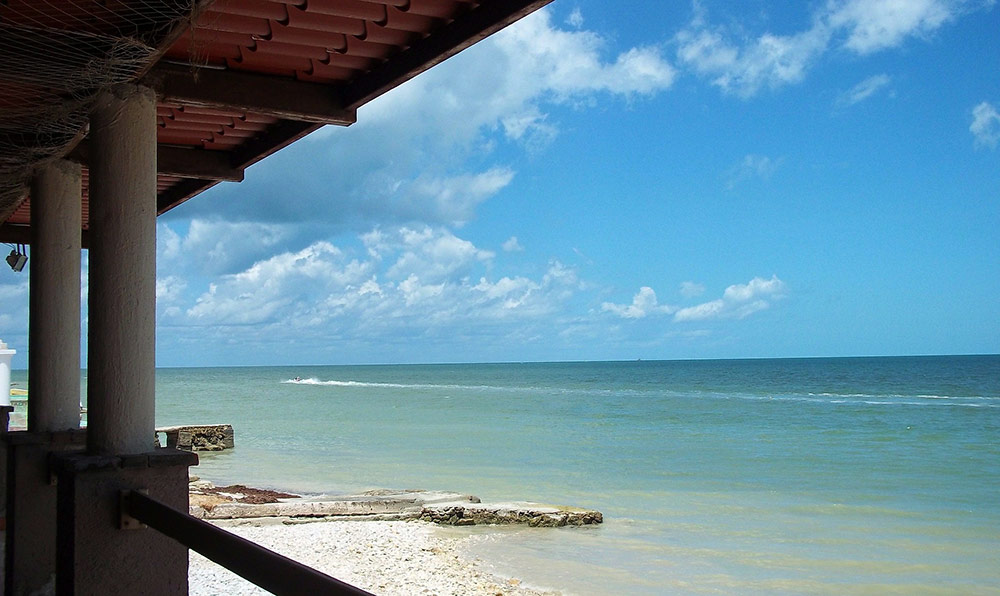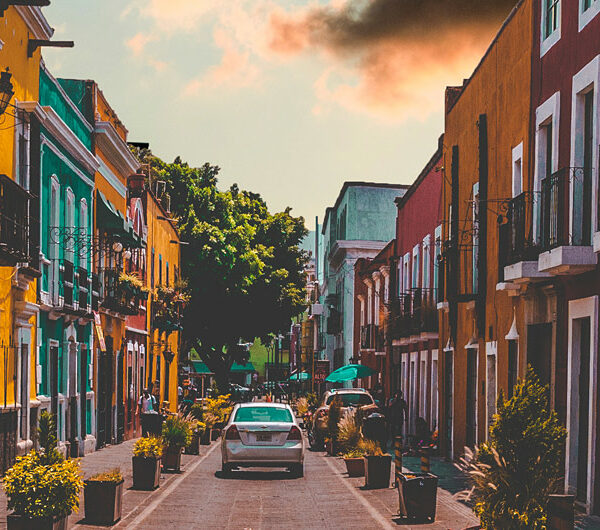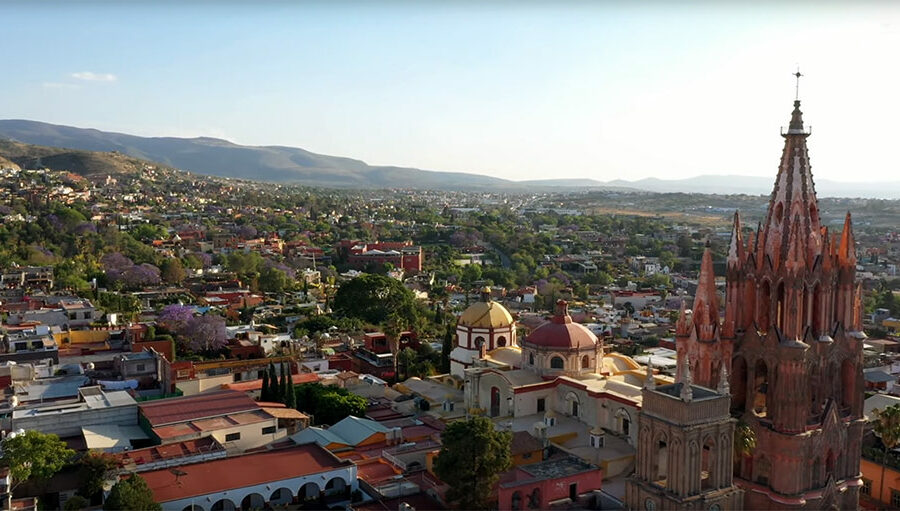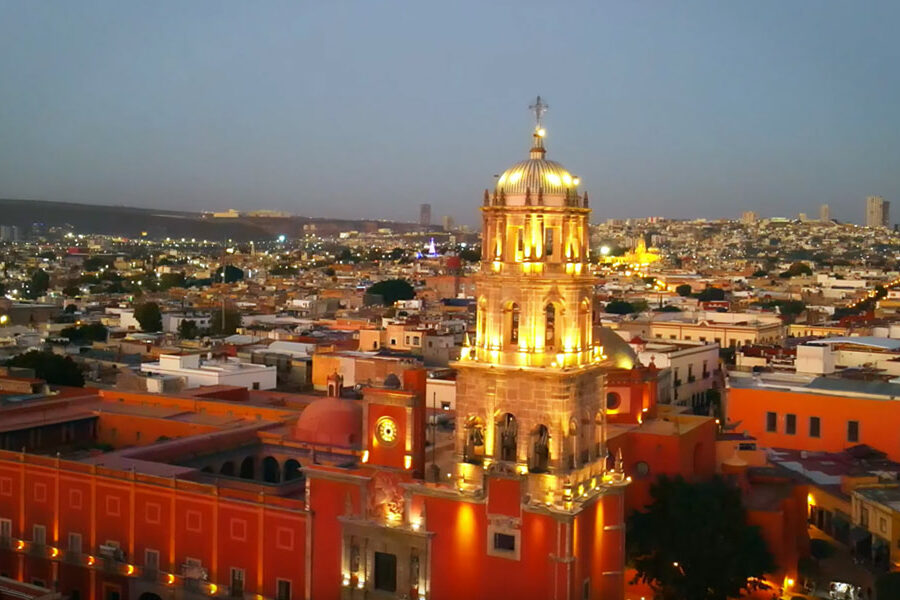The average social security check of a US citizen is more than triple the average salary in Mexico 1.
It is no surprise that many of retirement age or getting close to it are looking at Mexico as a good destination to live on. The lower cost of living makes money go a long way. The good weather and delicious food help too.
It all sounds great. But if you depend on your social security check to cover your expenses many questions come to mind.
In this article, I’ll tackle the most common questions about living on social security in Mexico. Let’s get started.
Social security in Mexico
Here are some of the most common questions regarding social security in Mexico. Let’s start with the most basic one. Is it even possible to live in Mexico on social security?
Can you collect US Social security and live in Mexico?
Yes! It is possible to collect social security and live in Mexico. In fact, according to the SSA, more than 58,000 payments are processed every month to US citizens with temporary or permanent residency in Mexico.
Directly from the SSA guide to Your Payments While You Are Outside the United States 2.
“If you are a U.S. citizen, you may
continue to receive payments outside the
United States as long as you are eligible
for payment and you are in a country
where we can send payments”
There is no requirement to live in the US or to even come back periodically. You can live anywhere in the world and claim your social security benefits. It is not even necessary to keep an active US address.
The US government has even established three federal benefits offices in Mexico to help you with anything you need. Each office covers certain areas so make sure to contact the one that corresponds to the state you have decided to live on.
Federal Benefits Units in Mexico
Mexico City FBU – Covers the states of: Michoacan, Guanajuato, San Luis Potosi, Queretaro, Hidalgo, Veracruz, Tlaxcala, Estado de Mexico, Mexico City, Morelos, Puebla, Guerrero, Oaxaca, Tabasco, Chiapas, Campeche, Yucatan, and Quintana Roo.
- Adress: Paseo de la Reforma 305, 06500 Mexico City.
- Phone: 01-800-772-6394 or 052-55-1102-6300
- E-mail inquiries: FBU.mexico.city@ssa.gov
Guadalajara FBU – covers the states of Baja California Sur, Sinaloa, Nayarit, Jalisco, Colima, Aguascalientes, and Zacatecas.
- Address: Progreso 175, 44100 Guadalajara, Jalisco
- Phone: 01-800-772-6394
- E-mail inquiries: FBU.Guadalajara@ssa.gov
Ciudad Juarez FBU – covers the states of Baja California Norte, Sonora, Durango, Chihuahua, Coahuila, Nuevo Leon, and Tamaulipas.
- Address: Paseo de la Victoria 3650, 32534 Ciudad Juarez, Chihuahua
- Phone: 01-800-772-6394
- E-mail inquiries: FBU.ciudad.juarez@ssa.gov
The fastest way to make an appointment at any of these offices is using this online form. You can find more information on the US Embassy & Consulates website.
How to collect social security in Mexico

There are two ways to receive your social security payments while abroad.
The first one is to keep on receiving your payment in a US bank account. You can then withdraw this money in Mexico using a local ATM.
The main benefit of this is that you would still be able to keep your savings in US dollars. This means your money will not be subject to the volatility of the Mexican peso.
On the other hand, the issue with this is that you will end up paying a lot more on conversion fees every time you withdraw money or make a payment.
The second method is to set up an international direct deposit to a Mexican bank. This will automatically convert the payment to Mexican pesos at the rate the bank offers that day.
This method has the advantage of not paying any additional conversion fees other than the currency spread. Make sure to shop around and choose the bank that offers you the best average dollar to peso rate.
The recommended way most ex-pats choose is to use a hybrid system where the deposit goes to your US account and then you move some of the money manually once or twice a month to the Mexican bank account as you need it and withdraw from that one. As a result, you can keep your savings in US dollars and you skip the high ATM currency conversion fees.
Does Mexico tax US social security income?
The answer is: it depends. To clarify, first, we must define what is considered a Mexican resident.
A Mexican resident is a person that has established their permanent home and place of residency in Mexico. For foreigners, this includes only people that have been granted a permanent residency visa or even Mexican citizenship.
Foreigners living in Mexico temporarily as tourists or on a temporary resident visa are considered non-residents.
So, in short:
If you are living in Mexico as a temporary resident, you will not have to pay taxes on US social security income. But If you are a Mexican permanent resident, you will have to pay taxes on it.
The good news is the US and Mexico have a tax treaty to avoid double taxation. This means that if you have your residency in Mexico and are paying taxes there, you will no longer be liable to pay taxes on that same income in the US.
It is important to clarify that even then, as a US citizen, you must still file for tax returns in the US and declare any assets you have in Mexico such as a savings account, a retirement fund, or a property. Even if you won’t be required to pay taxes for them in the US, you have to declare them for information purposes.
Finally, it is worth noting this only applies to social security income and all income generated in the US. Income generated within Mexican territory will be taxed in Mexico regardless of your residency status. This includes, for example, money earned from working for a Mexican company, starting a business in the country, or renting a property that you own in Mexico.
Maintaining social security benefits while living in Mexico

US citizens living in Mexico will not have any issues keeping their social security benefits. It is not necessary to go back to the US periodically, or at all.
However, you are required to report any of the following changes to the SSA.
- Change of address.
- Work outside the United States.
- If your disability improves, or you
return to work, after qualifying for
disability benefits. - Marriage.
- Divorce or annulment.
- Adoption of a child.
- Child leaves the care of a spouse or
surviving spouse. - Child nearing age 18 is a full-time
student or disabled.
12 - Death.
- Inability to manage funds.
- Deportation or removal from the
United States. - Changes in parental circumstances.
- Eligibility for a pension from work not
covered by Social Security
Since you will be moving to Mexico, point number 1 applies. You will be required to report the change of address.
Some recipients will be required to complete a yearly questionnaire between May and June. The annual requirement applies to recipients who reside outside the US and:
- Are age 90 or over;
- Have a representative payee; or
- Are not receiving benefits as a spouse, widow(er), parent, mother or father, or disabled widow(er)
Retire in Mexico on social security
Is it affordable to retire in Mexico only with your social security check?
It is definitely possible. There are many cities and towns in Mexico that are extremely budget-friendly. A monthly income of $2,000 to $3,000 for a retired couple will go a long way. The result is a much better lifestyle than in the United States. With that budget you can comfortably cover:
- Housing
- Food
- A car / transportation
- Weekly or biweekly housekeeping services
- Healthcare
And still have some leftover budget for savings and entertainment or disposable income.
To stay long-term in Mexico for retirement, you will need to apply for a temporary resident visa. It will allow you to remain in the country for one year with an option to extend it for 3 more years. After some time of living in Mexico, you will then be able to apply for a permanent residency which allows you to live in Mexico indefinitely. You will need to go back to the US for a bit to apply for that one. Here are the requirements for a Mexican visa.
You do not need to give up your US citizenship to live in Mexico. In fact, even if you decide to apply for Mexican citizenship in the future, you can have both at the same time. This is beneficial because it allows you to keep receiving the US social security benefits.
Check out our articles on American retirement communities in Mexico or Cheapest beach towns to live in Mexico for some ideas on places that are a perfect fit for retirees.






